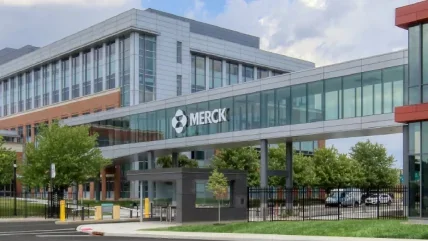
Merck, also known as MSD outside of the US and Canada, has signed an exclusive license agreement with Chinese biopharmaceutical company Hansoh Pharma for HS-10535.
HS-10535 is an experimental preclinical oral small molecule GLP-1 receptor agonist.
Under the terms of the agreement, Hansoh Pharma has granted Merck an exclusive global license to develop, manufacture and commercialise HS-10535.
Hansoh Pharma will receive an upfront payment of $112m and is eligible to receive up to $1.9bn in milestone payments, along with royalties on sales.
The milestone payments are contingent on the development, regulatory approval, and commercialisation of the candidate.
Hansoh Pharma may co-promote or solely commercialise HS-10535 in China.
Merck Research Laboratories president Dean Li said: “We continue to leverage science-driven business development to augment and complement our robust pipeline.
“Through this agreement, we aim to build on our experience targeting incretin biology to evaluate HS-10535 and its potential to provide additional cardiometabolic benefits beyond weight reduction.”
Hansoh is a China-based pharmaceutical company developing treatments in the areas of oncology, anti-infections, CNS diseases, metabolic diseases, and autoimmune diseases.
Last year, Hansoh Pharma signed an exclusive license agreement with the UK-based pharmaceutical company GSK, granting rights to its cancer drug candidate HS-20093.
HS-20093 is a B7-H3 targeted antibody-drug conjugate (ADC) that leverages a clinically validated topoisomerase inhibitor (TOPOi) payload.
Recently, the British drugmaker received the European Medicines Agency (EMA) Priority Medicines (PRIME) Designation for HS-20093, also known as GSK5764227.
Hansoh Pharma board executive director Eliza Sun said: “We are pleased to announce the in-license of our oral GLP-1 by Merck, a company with established leadership in cardiometabolic diseases.
“Hansoh Pharma is becoming an emerging leader in metabolic diseases, and we see Merck’s expertise and capabilities as key to accelerating the development of this promising asset for patients worldwide.”






